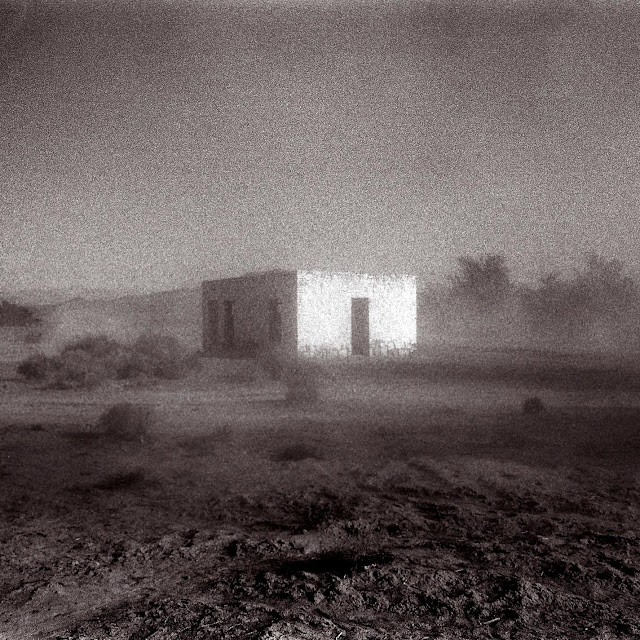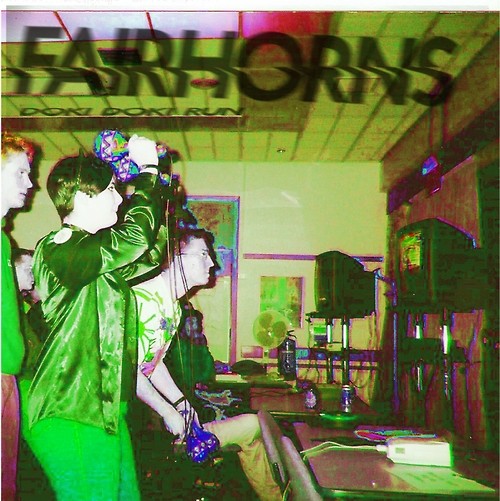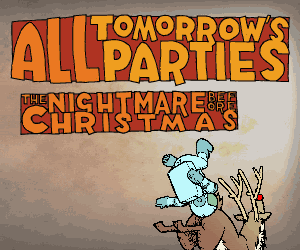
In an epoch in which neoclassical composers are the ones re-scoring the contemporary soundscapes our ears inhabit, they're perhaps afforded all too little column inch and mm² of ear canal. That was certainly the case with Braxton's Central Market: slipped out back in '09, it stands still a veritable opus. A magnum opus even; one brimming with invention and consummately unorthodox approaches to orchestra, yet one that largely went disregarded. Readily discarded even by many, it equalled EP C in challenge but as with all avant-garde triumphs, in provocation lay perfection. It then featured 16-piece NYC ensemble Wordless Music Orchestra (they that sublimely embellished both MONO's Holy Ground live LP, as well as Efterklang's already fabled Piramida showcase at The Met a couple weeks back) although it's tonight the Southbank Centre's resident troupe London Sinfonietta who bring Central Market to life. And vibrancy swiftly becomes key.
It is they who commence the evening, bringing the soir to simmer with an enchanting introductory salvo of ebbing minimalism – what I witness recalls Michael Nyman's Fish Beach caught in the soft, undulant undertow of Steve Reich's purposefully hydrous Music for 18 Musicians to begin with, before flowing into Toru Takemitsu's fluttering '82 masterstroke Rain Coming, and the inimitable Bryce Dessner's rather more jaunty Aheym. All this proves an ideal prelude to the hysterical mania to follow. A protracted interval entails a lengthy shuffle of Strats, stravs, saxophones, and music stands. Then, one by one, the Sinfonietta appear, their every rustle and tuning toot piercing the enjoyment of silence, as premature bursts of clarinet only serve to arouse impatience.
Bolstered by Dan Friel of Parts & Labor (the New York noise-pop experimentalists with whom Braxton far from coincidentally released '03 split LP Rise, Rise, Rise) amongst others, they make for a motley crew although in being just so, portray quite absolutely the all-embracive effect of this particular artist's output. And it is he who conducts the raucous, from once seemingly interminable soundcheck right through to the doomsday frenetics of Platinum Rows. A great deal more on that in a shorter while.
Tyondai is, however, obscured for much of the show. Imperceptible beyond an almost ominously enormous double bass stage-left, if he may be all but invisible then his impact is plainly apparent. Peripheral he may be, but he's with it undeniably pivotal. Of course the Sinfonietta here need Braxton – he's the post-math brainiac of the piece. But this sense of reliance is reciprocal: attempting to reconstruct Central Market without the backing of some form of orchestra is to decimate much of its magnificence. Alone, he infamously once not so long ago emptied a subterraneous Barcelona bass cavern, lest we forget. It was an odd trial (or perhaps error, rather) and one destined for foundering, given the essentiality of his any which orchestra. Eighteen months later however, it makes tonight all the more exultant.
French horns, dual drums, strings, and sonic deviants geared up on complex gadgetry bring an unprecedented grandiosity to Braxton's every compositional manoeuvre, and it's all wholly instant. This is how this record was meant to sound. Before it was as though the Bible bereft of written word; like The Holy Bible devoid of all its distorted vitriol. The condensed menace of a wondrously skittish Dead Strings breeds a joyous discontent; the maddening quacks of a few kazoos and the swooping, Osso-esque strings of The Duck And The Butcher set an enraptured audience to twitch with every schizophrenic restructuring in style; Uffie's Woodshop sounds like Walter Braunfels being clobbered to death with a hefty plank mid-oeuvre. These pieces are then punctuated by an awkward intersong discomfort. Stupefied, we sit. Mantled in quietude. Not one solitary hand claps. We're rapt, and yet the ambience is one of tension; of apprehension; of anxiety. Again, this is another aspect that simply couldn't better befit the jittery brilliance of the record we're here to begin to fully revere.
The bob of Braxton's sideshow afro does as much conducting as Caleb Burhans' spasming hands on the glitchy, whistle-y Opening Bell. Discernibly scored yet scarily au courant, it chimes with a postmodernist aplomb, majestically blurring the boundaries between the contemporary and the classical; the now and the then if you will as it does so. Platinum Rows is another example of this, and elucidates with great clarity Braxton's compositional ability. A piece bordering on the overwrought histrionics of opera, it's his pièce de résistance and takes as much from Prokofiev as it does fellow Warpster Prefuse 73. It's cold, and sterile, and connects almost exclusively in disconnection. Inconceivably complex, Braxton is its matrix; the mainframe through which its every schizoid freakout is channelled. He's even the hair to suggest harnessing such current has thoroughly frazzled the man.
But these are sounds emanating from the hinterland; from the dark parts most fear to tread. And yet as electric guitars, general electronics and an array of rather more organic instruments screech and squirm together in synchronicity, it's enough to disprove all forms of convention. Indeed, it's rather inspiring to see unconventional artists be conducted in such a conventional manner. Yet it's radicalism and eccentricity that here feel palpably electric, as forbidding drone evokes utter disconcertion across the 'Hall. The track's every ratchet clank sounds like a squillion Google searches ticking off in a second atop swabs of cello evocative of Tchaikovsky's The Nutrcracker, before it all fizzles out in a sprinkling of military snare. It's majesty, and grandeur, and menace pile-driven into ten-plus, and it leaves an indelible dent in the brain.
Unlike this somewhat pleonastic recap, the show is ultimately too short at just forty-five minutes and with a deficiency in newly concocted material, both present and future for Braxton appear a touch precarious. However these are small, if not insignificant gripes with what was otherwise one of the more masterful evenings bruised into the hippocampus of late.























